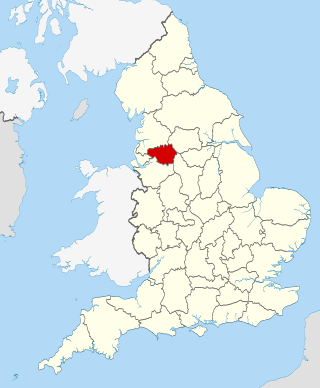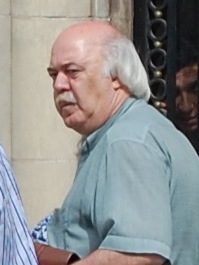
Local government is a generic term for the lowest tiers of governance or public administration within a particular sovereign state.
In many countries, a mayor is the highest-ranking official in a municipal government such as that of a city or a town. Worldwide, there is a wide variance in local laws and customs regarding the powers and responsibilities of a mayor as well as the means by which a mayor is elected or otherwise mandated. Depending on the system chosen, a mayor may be the chief executive officer of the municipal government, may simply chair a multi-member governing body with little or no independent power, or may play a solely ceremonial role. A mayor's duties and responsibilities may be to appoint and oversee municipal managers and employees, provide basic governmental services to constituents, and execute the laws and ordinances passed by a municipal governing body. Options for selection of a mayor include direct election by the public, or selection by an elected governing council or board.

Montréal is one of the administrative regions of the Canadian province of Quebec. It is also a territory equivalent to a regional county municipality (TE) and a census division (CD), for both of which its geographical code is 66. Prior to the merger of the municipalities in Region 06 in 2002, the administrative region was co-extensive with the Montreal Urban Community.

The Montreal City Council is the governing body in the mayor–council government in the city of Montreal, Quebec. The head of the city government in Montreal is the mayor, who is first among equals in the city council. The council is a democratically elected institution and is the final decision-making authority in the city, although much power is centralized in the executive committee. The council consists of 65 members from all boroughs of the city. The council has jurisdiction over many matters, including public security, agreements with other governments, subsidy programs, the environment, urban planning, and a three-year capital expenditure program. The city council is also required to supervise, standardize or approve certain decisions made by the borough councils.

Leeds City Council is the local authority of the City of Leeds in West Yorkshire, England. It is a metropolitan district council, one of five in West Yorkshire and one of 36 in the metropolitan counties of England, and provides the majority of local government services in Leeds. It has the second-largest population of any council in the United Kingdom with approximately 800,000 inhabitants living within its area; only Birmingham City Council has more. Since 1 April 2014, it has been a constituent council of the West Yorkshire Combined Authority.
A municipal council is the legislative body of a municipality or local government area. Depending on the location and classification of the municipality it may be known as a city council, town council, town board, community council, rural council, village council, or board of aldermen.

The municipal government of Toronto is the local government responsible for administering the city of Toronto in the Canadian province of Ontario. Its structure and powers are set out in the City of Toronto Act.
The government of Porto Alegre, bound to the Porto Alegre City Charter, is a mayor-council form of government, which is mandated by the Brazilian Constitution of 1988. The government of Porto Alegre is responsible for primary education, healthcare, libraries, parks and open spaces, sanitation, water supply, and youth correctional services.

The Province of Quebec is divided into entities that deliver local government, along with other types of functional divisions.

The Greater Manchester Combined Authority (GMCA) is a combined authority for Greater Manchester, England. It was established on 1 April 2011 and consists of 11 members; 10 indirectly elected members, each a directly elected councillor from one of the ten metropolitan boroughs that comprise Greater Manchester, together with the directly elected Mayor of Greater Manchester. The authority derives most of its powers from the Local Government Act 2000 and Local Democracy, Economic Development and Construction Act 2009, and replaced a range of single-purpose joint boards and quangos to provide a formal administrative authority for Greater Manchester for the first time since the abolition of Greater Manchester County Council in 1986.

Local government in the Australian state of Victoria consists of 79 local government areas (LGAs). Also referred to as municipalities, Victorian LGAs are classified as cities (34), shires (38), rural cities (6) and boroughs (1). In general, an urban or suburban LGA is called a city and is governed by a City Council, while a rural LGA covering a larger rural area is usually called a shire and is governed by a Shire Council. Local councils have the same administrative functions and similar political structures, regardless of their classification.
Ivon Le Duc is a politician and entrepreneur in Montreal, Quebec, Canada. He served on the Montreal city council from 1994 to 2005 and was a member of the Montreal executive committee in Pierre Bourque's administration from 1998 to 2001. Elected three times as a member of Bourque's Vision Montreal (VM) party, he later served with the Montreal Island Citizens Union (MICU) and as an independent.

Laurent Blanchard is a politician in Montreal, Quebec, Canada. He represented the east-end Hochelaga ward on Montreal city council from 2005 to 2013, initially as a member of Vision Montreal and later as an independent. On June 25, 2013, he was elected by council as interim Mayor of Montreal, a position he served in until the election of Denis Coderre on November 3, 2013.
Jacques Charbonneau is a former politician in the Canadian province of Quebec. He served on the Montreal city council from 1986 to 2001, originally as a member of the Montreal Citizens' Movement (MCM) and later as a member of Vision Montreal (VM).
Hasmig Belleli is a politician in Montreal, Quebec, Canada. She served on the Montreal city council from 1994 to 2005 and again from 2008 to 2009 as a member of Vision Montreal.
Josée Duplessis is a politician in Montreal, Quebec, Canada. She has served on the Montreal city council since 2009, representing De Lorimier as a member of Projet Montréal, and has been a member of the Montreal executive committee since November 2012. In June 2013, she was appointed as chair of the executive committee.

In France, a mayor is chairperson of the municipal council, which organises the work and deliberates on municipal matters. The mayor also has significant powers and their own responsibilities, such as the responsibility for the activities of municipal police and for the management of municipal staff.
An ayuntamiento is the body charged with the government and administration of the municipalities in Spain not bound to the regime of concejo abierto. The ayuntamiento is one of the bodies charged with Local government in Spain.
Marianne Giguère is a politician in Montreal, Quebec, Canada. She has served on the Plateau-Mont-Royal borough council since 2013 and on the Montreal city council since 2017 as a member of Projet Montréal. In November 2017, she was appointed as an associate member of new mayor Valérie Plante's Montreal executive committee.










